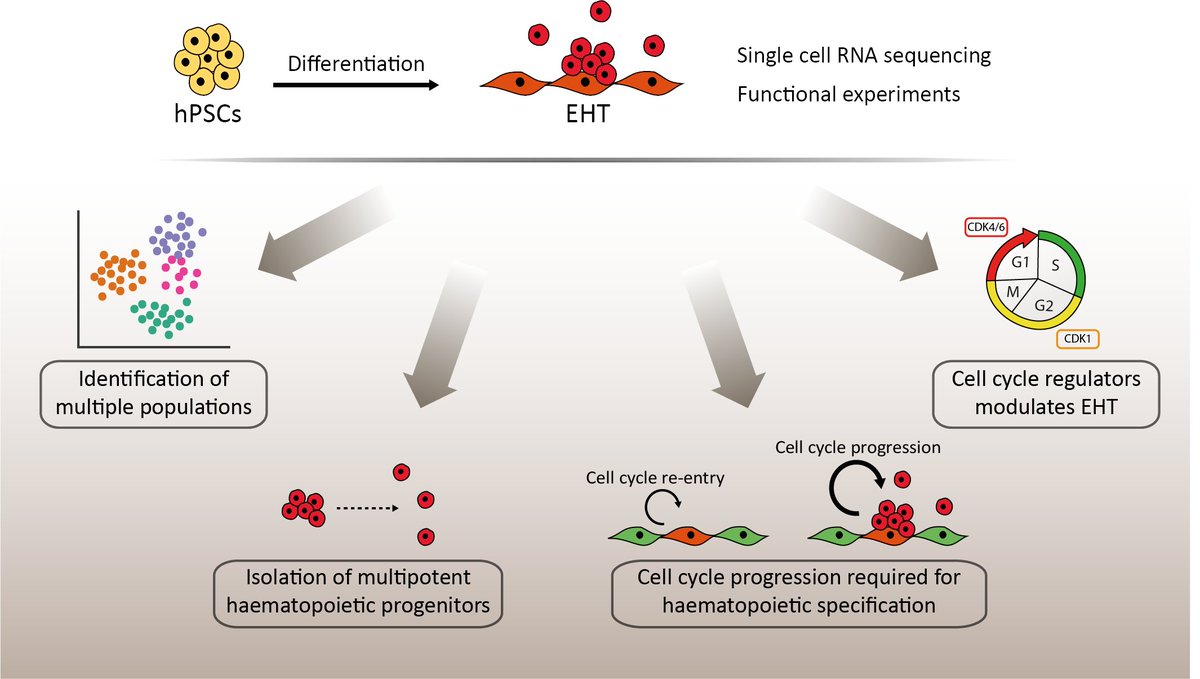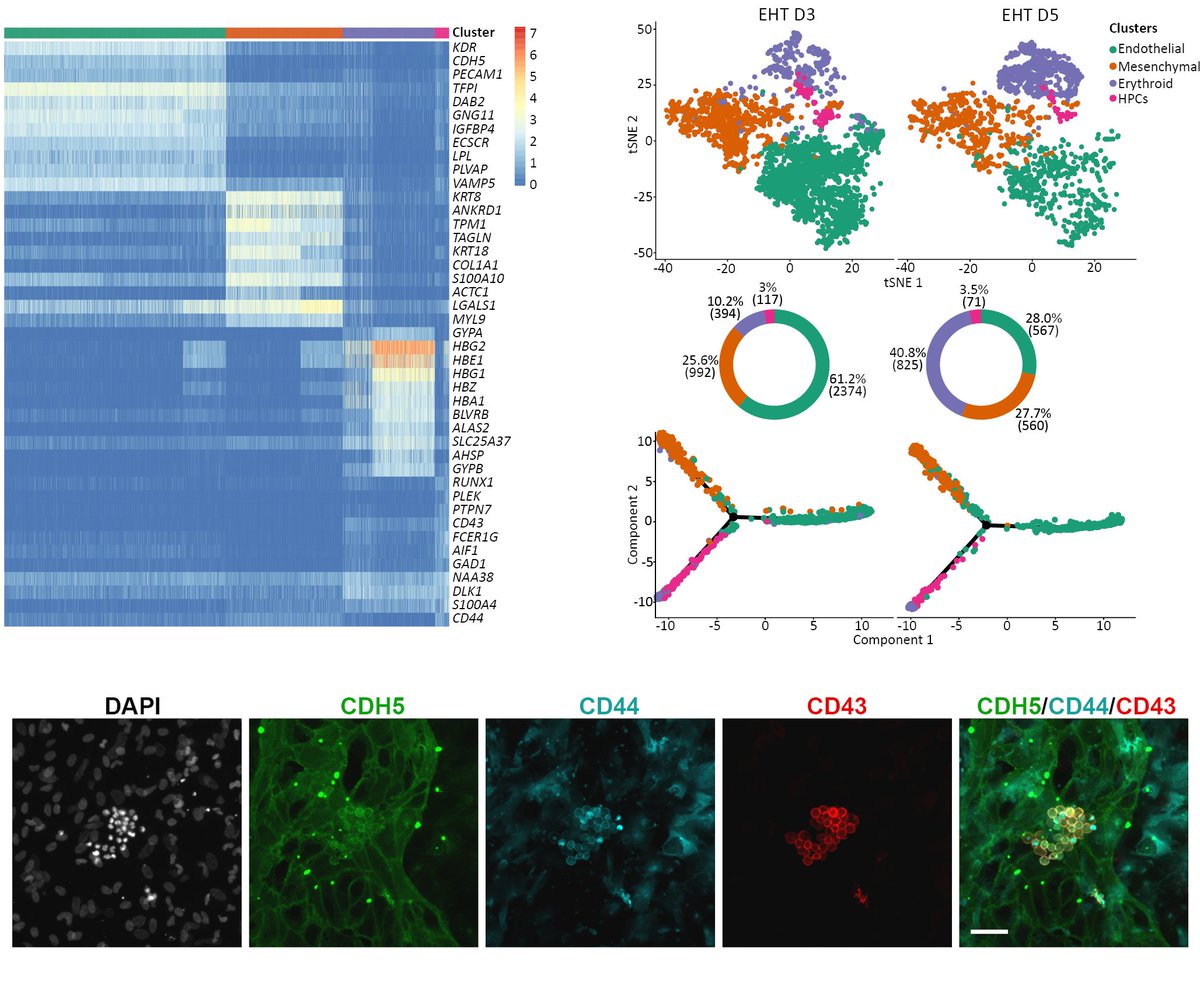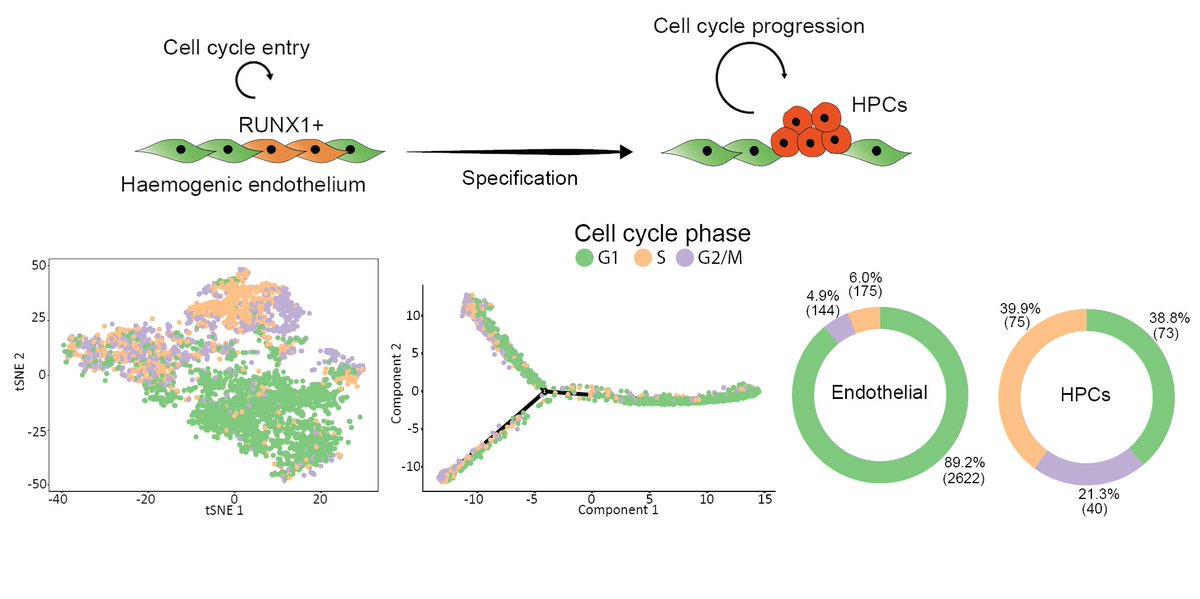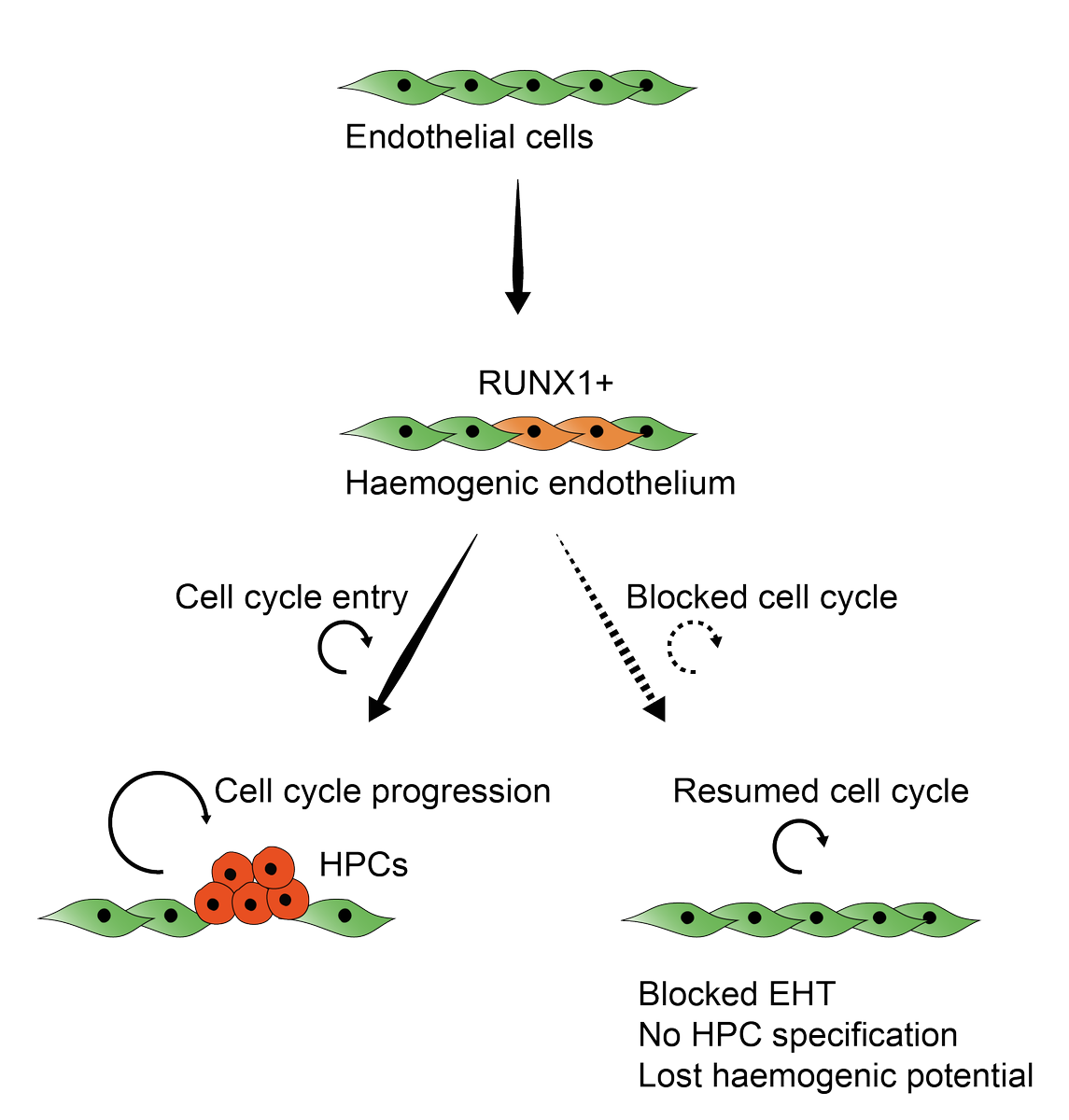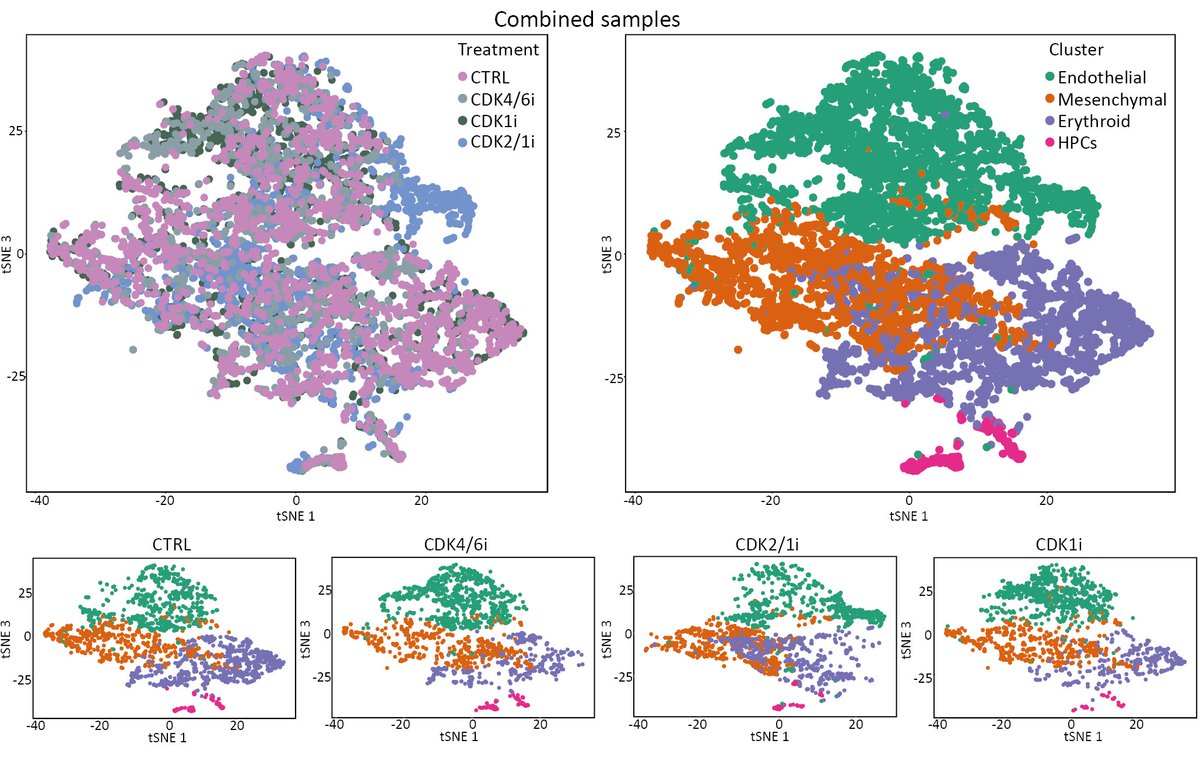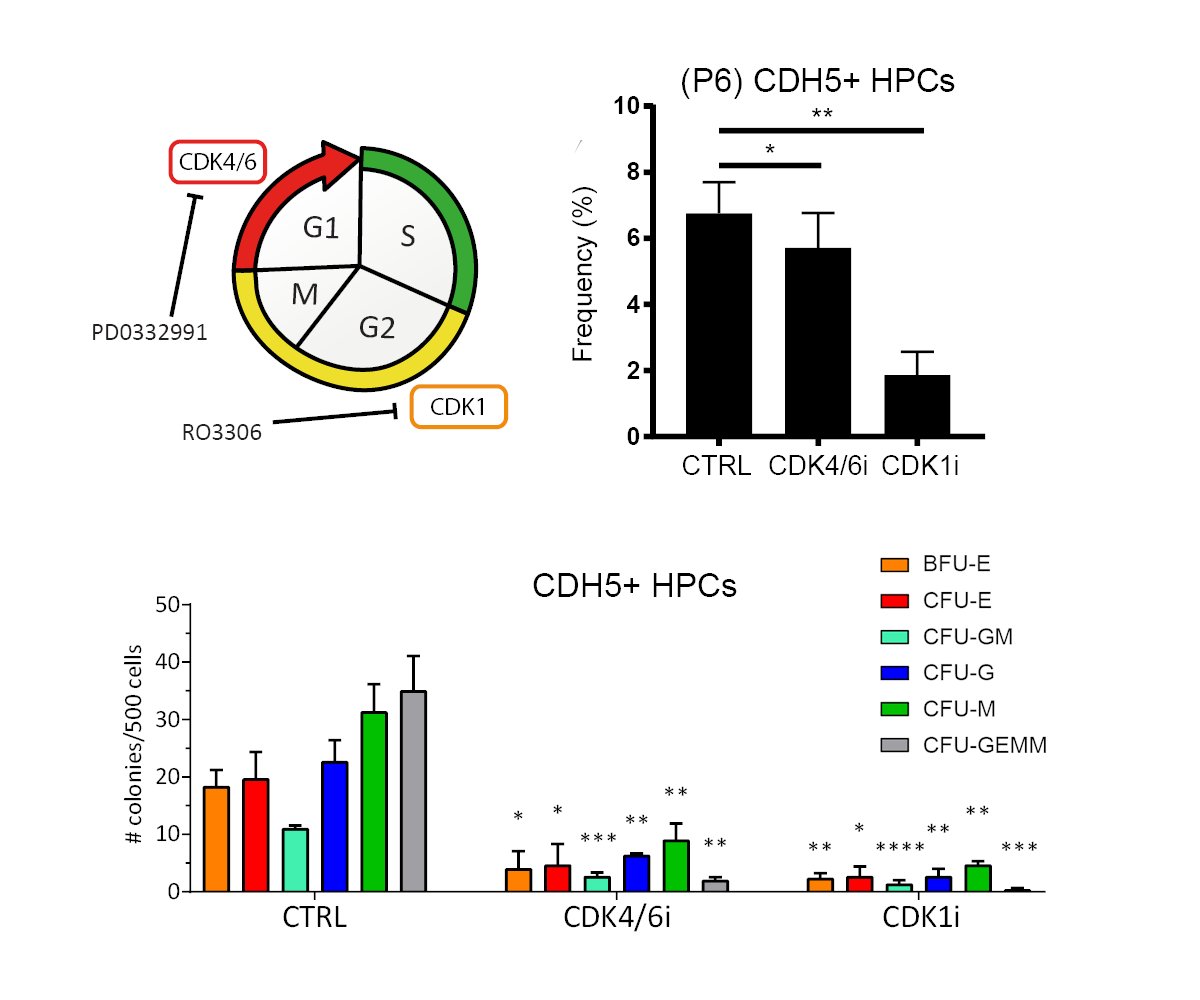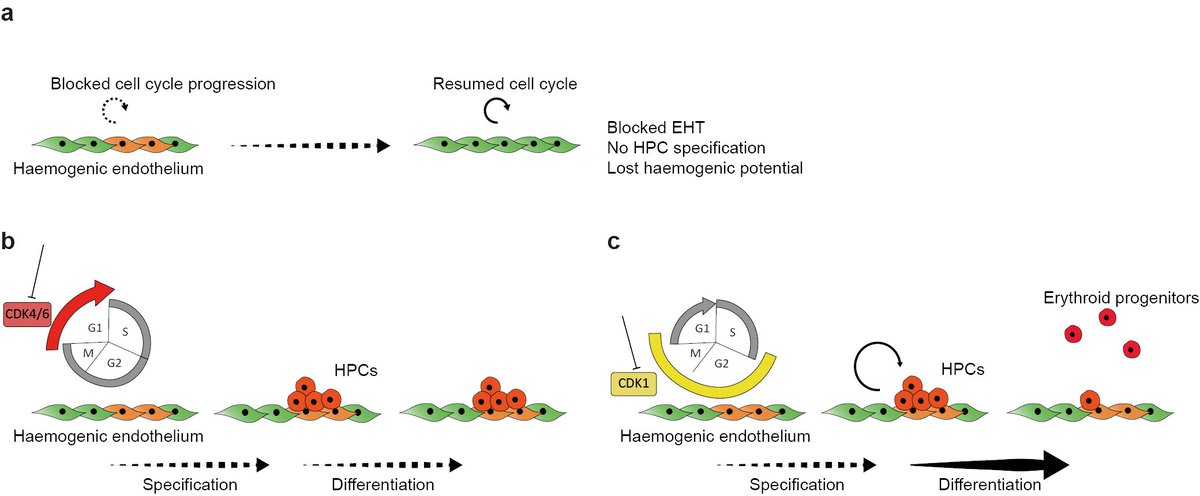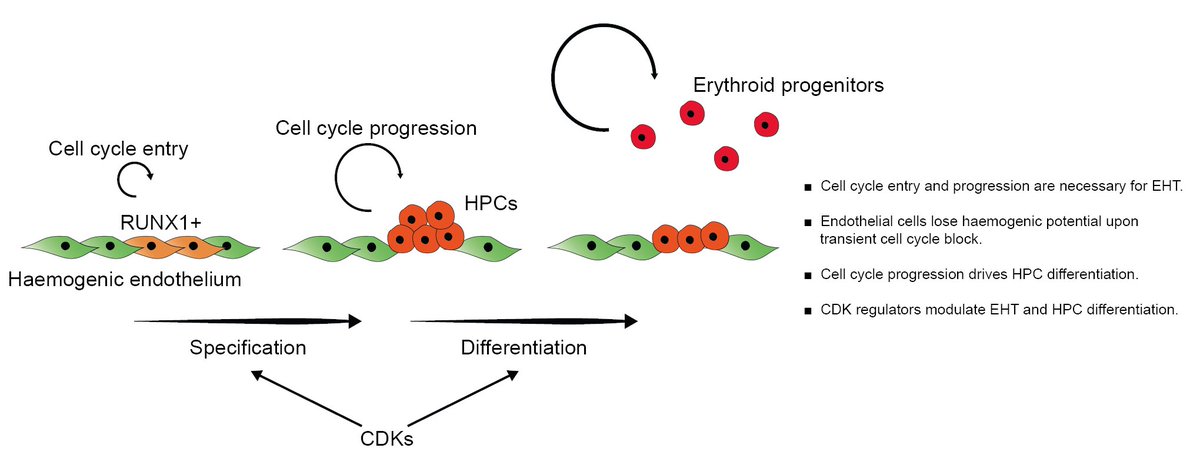The preprint for my main PhD project in the @Vallierlab @SCICambridge is finally available online! And I’m really excited to share it with you all.
Follow the tread for some sneak peaks! https://www.biorxiv.org/content/10.1101/2020.04.03.023762v1">https://www.biorxiv.org/content/1...
Follow the tread for some sneak peaks! https://www.biorxiv.org/content/10.1101/2020.04.03.023762v1">https://www.biorxiv.org/content/1...
1/ We used #hPSCs to model endothelial-to-haematopoietic transition ( #EHT), a developmental process producing the first HSPCs from haemogenic endothelial cells. By #singlecell analyses and functional experiments we found that cell cycle regulation is a driver of differentiation
2/ We performed extensive characterisation of the system and the populations generated in vitro. #Endothelial cells (EC) produce #haematopoietic progenitors (HPC) capable of multilineage differentiation. Importantly, we defined a sorting strategy to isolate this population
3/ Key fact, haemogenic endothelial cells (HEC) are a quiescent/slow cycling population. Progression through EHT is associated with #cellcycle re-entry and progression
4/ EHT takes place during a narrow and well-defined time window. If cell cycle is blocked during this time, ECs lose haemogenic potential. Even when the block is removed, EHT ability is permanently lost. ECs restart proliferation but downregulate RUNX1 and remain non-haemogenic
5/ Cell cycle regulators mediate this process. The activity of both CDK4/6 (G1 phase) and CDK1 (G2/M) is required for EHT. However, their role goes beyond that. Their inhibition alters, rather than block, the EHT process.
6/ Inhibiting CDK4/6 or CDK1 activity deplete the ability of haematopoietic progenitors (HPCs) to further differentiate to #blood cells. However, the two regulators appear to have distinct roles
7/ CDK4/6 is necessary for acquiring differentiation potential. Its inhibition preserves HPCs but they can& #39;t differentiate. CDK1 is more important for maintenance, as the HPC population is eroded when CDK1 is inhibited and only non-cycling cells can preserve the HPC state
8/ The function of CDK4/6 and CDK1 goes beyond their canonical role in proliferation. These cell cycle regulators possibly modulate timely activation of the haematopoietic transcriptional network. scRNAseq show that CDK inhibition leads to modest but broad transcriptional changes

 Read on Twitter
Read on Twitter